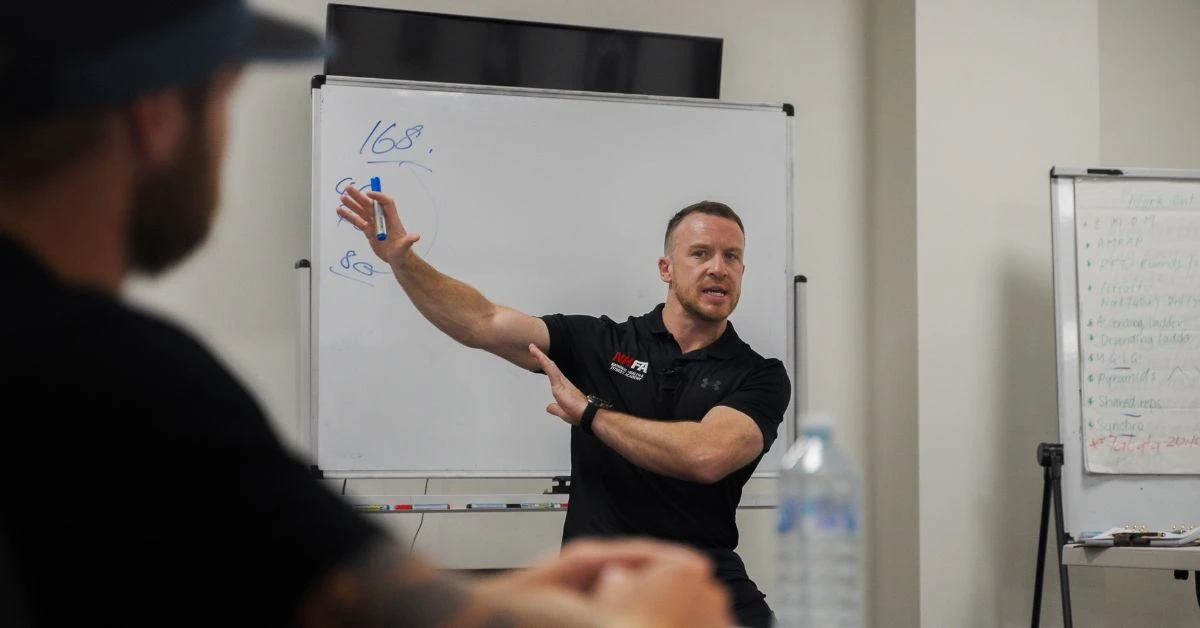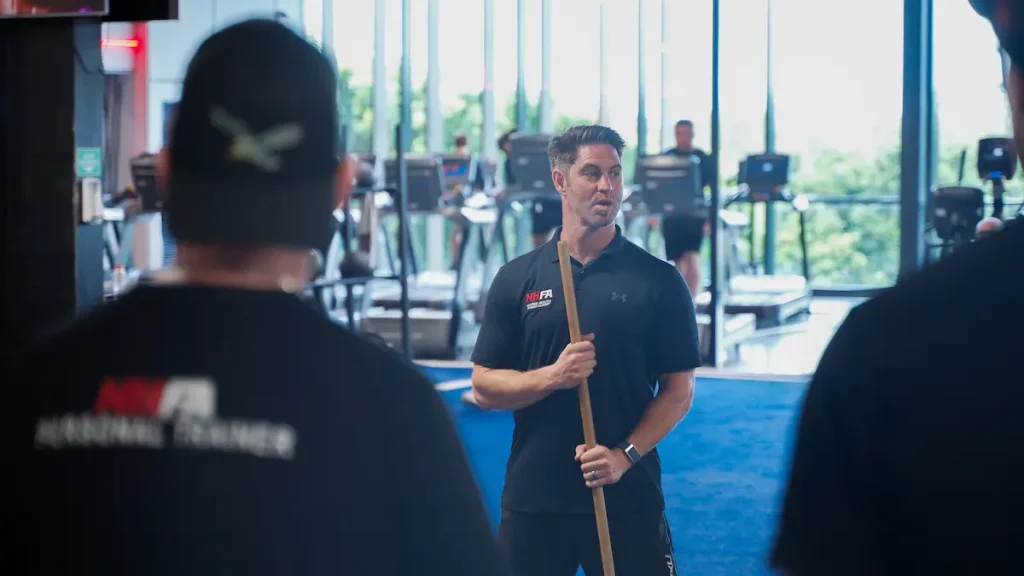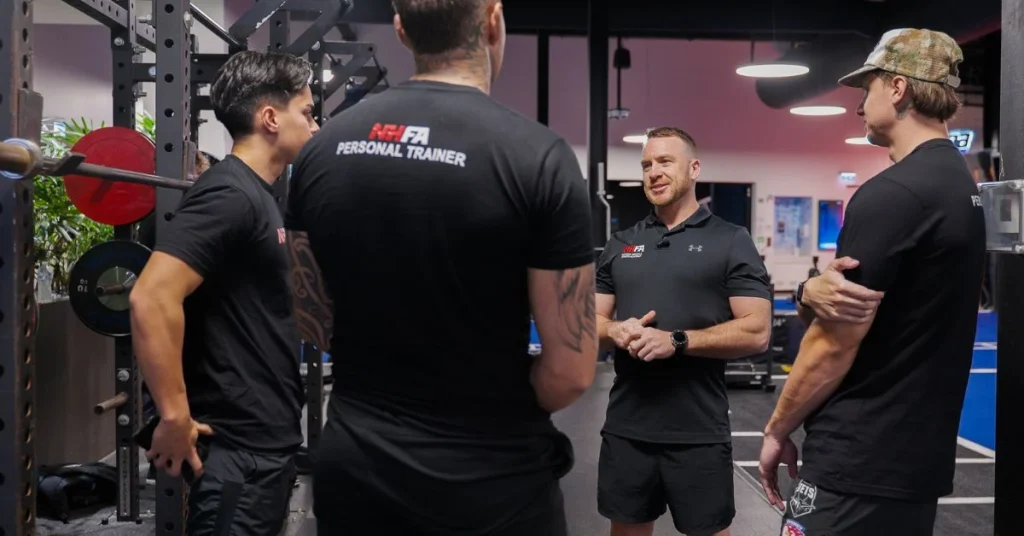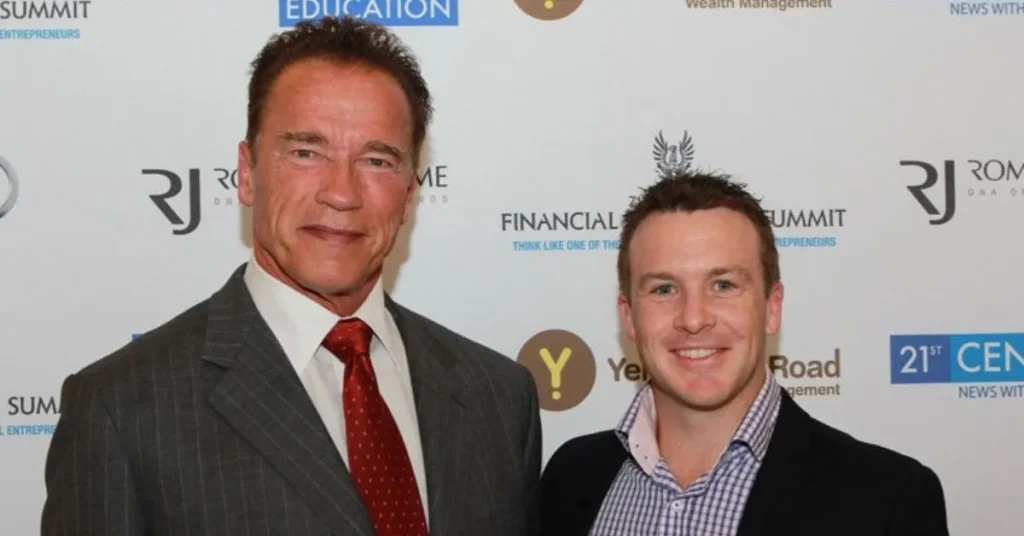
The Reality of Running a Fitness Business
Starting a business in the fitness industry can be one of the most rewarding decisions you’ll ever make. But it can also be one of the toughest.
Why did I feel the need to create a Business Mentorship Program for Personal Trainers and Coaches? Well, the stats say it all.
We know business is challenging at the best of times. And depending on which article or study you read, you’ll often see claims that most small businesses don’t make it past the first few years. But what do the real numbers show?
According to the Australian Bureau of Statistics (ABS), around 61% of Sports and Recreation businesses remain active after four years.
Breaking that down:
- Only 63.2% of small non-employing businesses remain, meaning more than a third close.
- Slightly larger places with 1 to 4 employees, 79.5% survive, but one in five will cease operations.
- Even for slightly larger operations (5-19 employees), nearly one-third (32.8%) exit the market.
These numbers show that success in the fitness industry is possible, but not guaranteed. It takes more than passion. It takes education, business systems, and dedicated support to create something that lasts.
Learn how trainers build measurable growth through structure in How to Become a Six-Figure Personal Trainer.
From Skill to Strategy
I can only speak for myself, but my first thought about working for myself came when I was just 18.
I was young, naive, and working as an apprentice butcher. I started at 16, and to be honest, I was pretty slow compared to the other guys in the shop. I had a fourth-year apprentice showing me the ropes, but I quickly realised he wasn’t the most skilled or hardworking. So I kept learning from him, but I’d also go in early and stay back late to learn from the others.
The butchers all had different special skills. Rather than settling for average, I focused on building mine: watching, practising, and learning from the best.
After a couple of years, I felt as good as those guys, sometimes even faster. Add in the fact that I didn’t take the five-minute smoko every hour, and I was getting through an extra hour’s work a day. That adds up: five hours a week, 20 hours a month, basically five extra weeks of work each year.
Most of us have been in jobs where we do more, deliver better service, and work harder, yet get paid the same as everyone else. It’s frustrating. It makes you think:
“Maybe I could do this myself.”
“What if I got paid for all the work I actually do?”
That was exactly what I thought. I wanted to work for myself and create my own path.
Starting Out as a New Personal Trainer
When you first graduate, you’re qualified but inexperienced. You’ve learned the fundamentals, but now comes the real challenge – applying them in the field.
Group training environments are an excellent starting point for new trainers. They let you:
- Build confidence working with diverse clients.
- Improve communication and motivation skills.
- Learn from more experienced instructors.
Studios such as F45, BodyFit, Fitstop, or other small-group training facilities can act as a hands-on apprenticeship. You’ll get regular sessions, quick feedback, and steady income without the overheads of running your own business.
Tip: When you focus on showing up early, delivering energy, and helping members succeed, business owners notice. Many new trainers move from instructor to senior coach or even studio manager roles within their first year.
If you’re hungry to learn and ready to gain experience before stepping out on your own, this path builds the foundations every great PT needs.
Moving Forward as a Confident or Experienced Trainer
Once you’ve developed confidence, communication skills, and a client-centred mindset, you might be ready to operate more independently.
Many experienced trainers choose to rent space in larger clubs such as Goodlife, EMF, Fitness First, or Genesis. These clubs attract new members daily, and many offer PT starter packs that help generate early leads.
You’ll pay rent to operate inside the facility, but in return you’ll build your own schedule, client list, and earning potential.
Smaller gyms like Anytime Fitness or Jetts often have fewer trainers on the floor, which can mean less competition and more opportunities for growth.
Earnings vary widely depending on client demand, location, and individual business practices. Always review your costs and obligations carefully before entering any rent agreement.
This stage requires more than good coaching: it requires business understanding, systems, and financial planning.
NHFA Founder & Director, Dave Burgis, goes through investing in your fitness business education.
Why Business Education Matters
So many of us start businesses because we’re good at what we do. But being a great Personal Trainer doesn’t automatically make you great at running a business. The same applies across trades and industries; people with skill and passion often find themselves unprepared for the business side.
And it starts even earlier than that; with how you choose to get qualified.
Qualifications Alone Aren’t Enough
When most people think about becoming a Personal Trainer, the first question they ask is often, “How much does it cost?”
It’s a fair question, but it’s not the most useful one. A stronger question is, “Where can I get the best possible education and mentorship to become an elite trainer?”
Your qualifications open the door to the industry, but they’re only the starting point. What happens after that depends on the quality of your training, your mindset, and the ongoing guidance you receive.
The difference between an average trainer and a high-performing professional often comes down to:
- Learning from experienced educators and industry mentors.
- Getting face-to-face, hands-on practical training rather than only online theory.
- Having access to ongoing mentoring and career pathways through trusted industry partners.
- Building systems, confidence, and a clear plan for how to grow your business after graduating.
Completing a course alone doesn’t guarantee success: it’s the real-world experience, feedback, and guidance that turn knowledge into results. Cheap or rushed programs often skip these components, leaving trainers with the certificate but not the confidence or structure to succeed.
If you want to stand out, invest in education that builds not only your fitness expertise but also your business and communication skills. Average education produces average outcomes. Elite education and mentorship create elite trainers.
That’s why I created the Business Mentorship program: to save you time, money, and frustration, and to teach the lessons I wish I knew when I started. It’s built around real experience, not theory. If you’ve got the drive to build something of your own, and the work ethic to back it. My advice is to go for it. Chase it hard, but be smart about your approach. Success leaves clues. Learn from those who’ve already done it.
Invest in mentors who’ve made mistakes, learned from them, and can guide you through the same challenges with confidence.
The biggest lesson I’ve learned is that investing in your education isn’t a cost; it’s an opportunity. When money was tight, I used to ask, “How much will this course cost me?”
Now I ask, “What will it cost me if I don’t do it?”
The truth is, the cost of doing nothing, repeating the same mistakes, wasting time on the wrong strategies, is far greater than the cost of learning from the right people. If a course, coach, or mentor has a proven record, that investment can repay itself many times over.
Education builds confidence, but mindset drives momentum. For timeless lessons on discipline and motivation, check out Arnold’s 6 Rules to Success.
So the real question is: how much are you willing to invest in yourself, your career, and your future?
All your business success is on the other side of gaining the education, skills, and strategies to make it happen. At NHFA, our mission is to educate, coach, and mentor trainers and coaches to achieve long-term success, and to earn the income their effort deserves.
From Experience to Entrepreneurship
By now, you’ve built your foundation.
You’ve trained real clients, developed your communication skills, and learned how the business side of fitness actually operates.
Starting in a group training environment helped you gain confidence. Moving into a club or private facility taught you responsibility, consistency, and the realities of running sessions day after day. But there’s another step ahead, one that separates a busy trainer from a sustainable business owner.
That next step is strategy.
Running sessions is one thing, but building a business that lasts requires structure. It means understanding how to manage time, attract clients consistently, set prices that reflect your value, and create systems that don’t rely on working every hour of the day.
Many trainers reach this point and feel stuck. They’re skilled at coaching, but unsure how to grow further without burning out. That’s where business education and mentorship become crucial. Structured mentorship provides a framework: helping you plan, measure, and scale your results instead of relying on trial and error. You’ll learn how to think like a business owner, not just a trainer, and make decisions that move your career forward with purpose and clarity.
The goal isn’t to change what you do, but to evolve how you do it. By investing in your own education, you transform experience into entrepreneurship, and passion into progress.
Your next chapter starts when you choose to learn, grow, and take control of your career.
Ready to take the next step?
Build a Fitness Business That Thrives
Explore NHFA’s Business Mentorship Program and start building the business you’ve always envisioned.
Schedule Call

